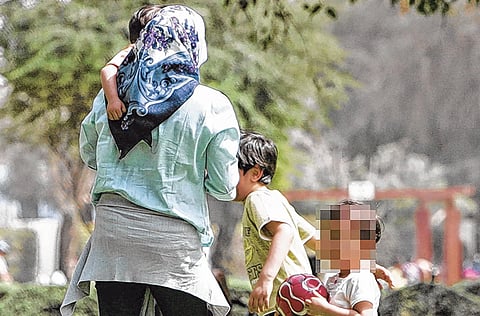The 3 negative impacts domestic helpers have on UAE kids
Sharjah Social Services Department warns of the negative impact domestic helpers may have on children

Dubai: A recent study carried out in Sharjah has revealed the consequences domestic helpers may have on children in the UAE.
The Sharjah Social Services Department carried out the research during the last quarter of 2017, and after interviewing 600 families who employed domestic help, found that the three main negative effects on children included:
- the inability to learn the native language
- being susceptible to physical violence
- losing moral values.
“The results of the study indicate that level of gravity that expatriate domestic workers have on our children, which will eventually impact the habits and behaviours of society in the future,” Jassem Al Hammadi, Director of Knowledge Management at the Sharjah Social Services Department, told the Arabic daily Emarat Al Youm.
The latest findings showed that 49.8 per cent of respondents said their children lost the grasp of the Arabic language, while 25 per cent said they were concerned that their children were vulnerable to sexual harassment.
Out of the total respondents surveyed, 29.5 per cent said that employing expatriate domestic workers had a negative effect on their children’s values, morals and religious behaviours and beliefs.
Up to 31 per cent of those surveyed said their children were subjected to domestic violence by housemaids.
The continuous lack of parental presence in homes further revealed that 32.5 per cent of children were more dependent on domestic helpers than on their mothers, and that 40 per cent of children did not receive sufficient attention from their mothers.



